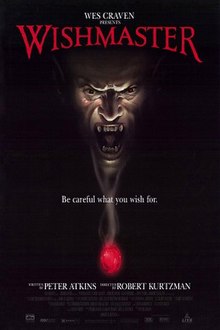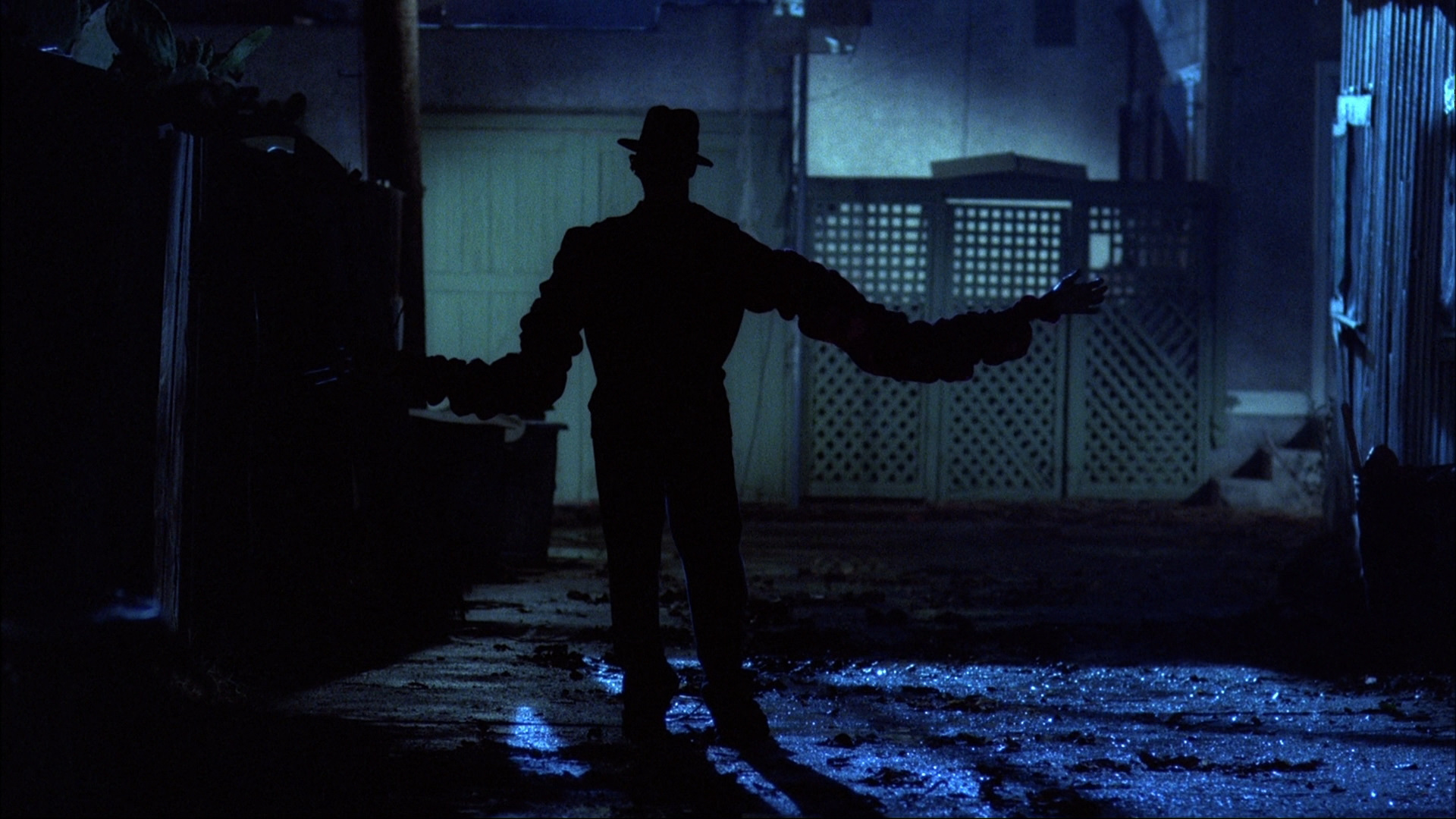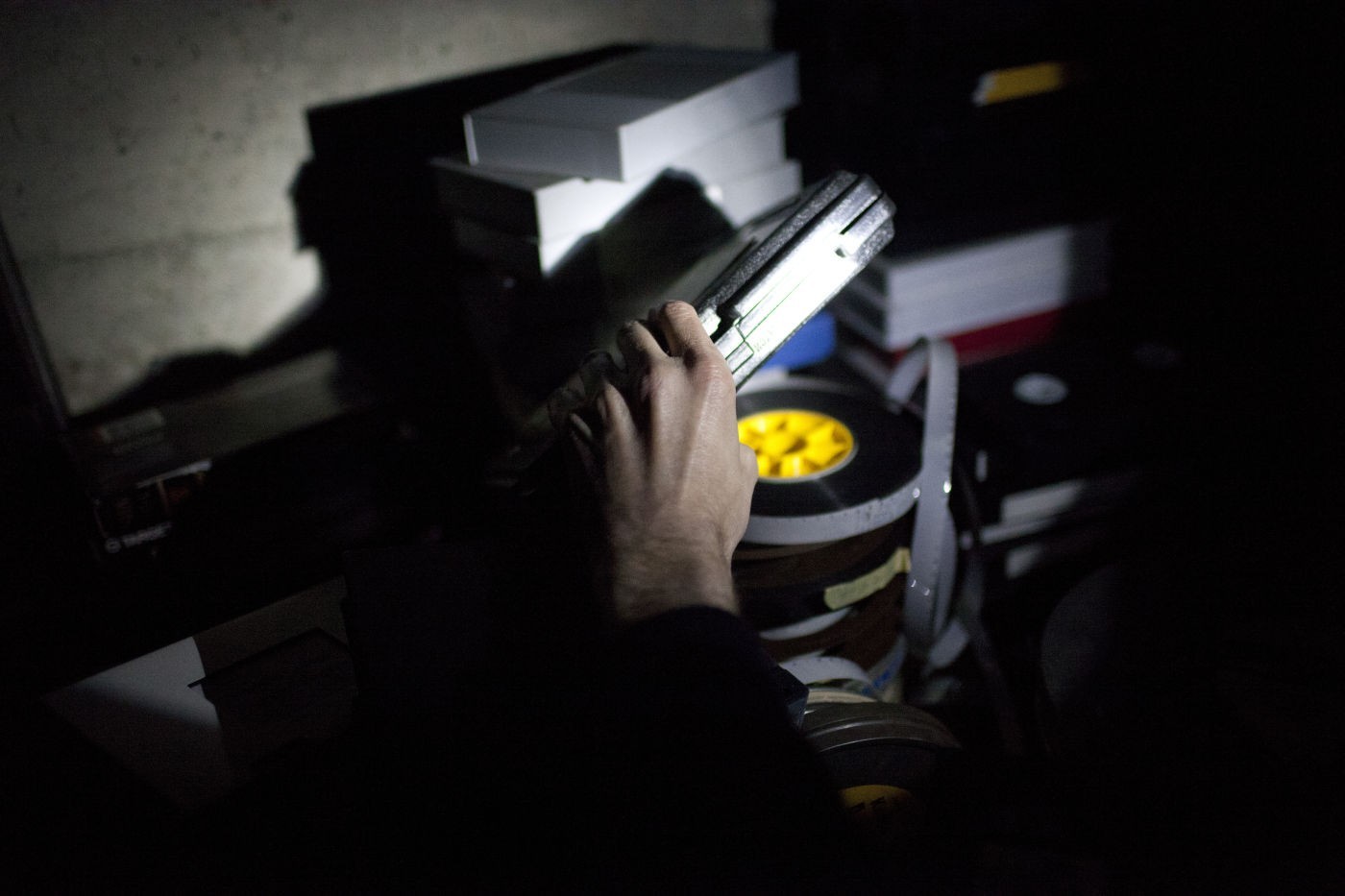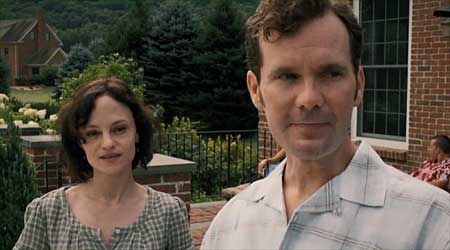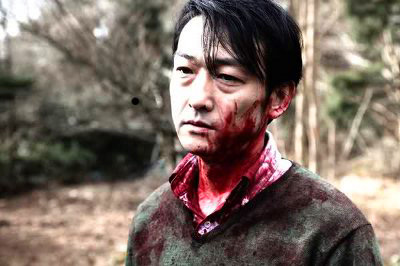What surprised me on rewatching was that I did not remember how unintentionally funny the movie truly proves.
The film opens with a long-winded history of the djinn in the context of the film. Evil creatures that prey on humanity, this representation is at least somewhat more accurate to the mythology than newer representations, and the narration as read by Angus Scrimm, from Phantasm fame, is well done if not a little long in tooth. This creeps to a wizard working with eerie materials, a sort of ancient mad scientist. The wizard in the opening is more the alchemist than the occultist, but the set in the opening is creepy enough, with its skull containers. Although there is an odd purple lighting that, while an interesting choice-- purple being a color often associated with magic and, in a more ancient context, royalty-- it serves to actually diminish a lot of the creepiness to the set dressing.
It also doesn't help that a lot of interesting potential for lighting was apparently shrugged off for a more even, flat look. This lighting issue is not as prevalent later on in the film, but here, in the spooky dungeon of the alchemist, it is a sadly missed opportunity.
We then cut to the king-- or whatever, I'm not trying to be historically accurate-- speaking with the Djinn, wishing to see sights unlike any other. Which the djinn proceeds to wreak creative havok on the denizons of the kingdom. Here, once again, an interesting concept is squandered a bit with bland directing. As the extras dash back and forth, we see interesting effects-- one notable one is a man whose skeleton literally tears out from his skin and proceeds to attack others-- but they are filmed in such a haphazard way that they lose a lot of their effect and come out downright comic.
The choreography of that scene was somewhat nice, though, with the citizens dashing to and fro chaotically.
It isn't that the opening is weak per se-- I do quite enjoy some of the weird and wild ways the djinn decides to torture the citizens with, and the intestine-monster that bites the hand of its neighbor made me chuckle. I just felt that the scene felt rushed, as if the filmmakers just wanted to run through the scene instead of trying to plan a careful route through the chaos, and I feel it suffers a bit for this.
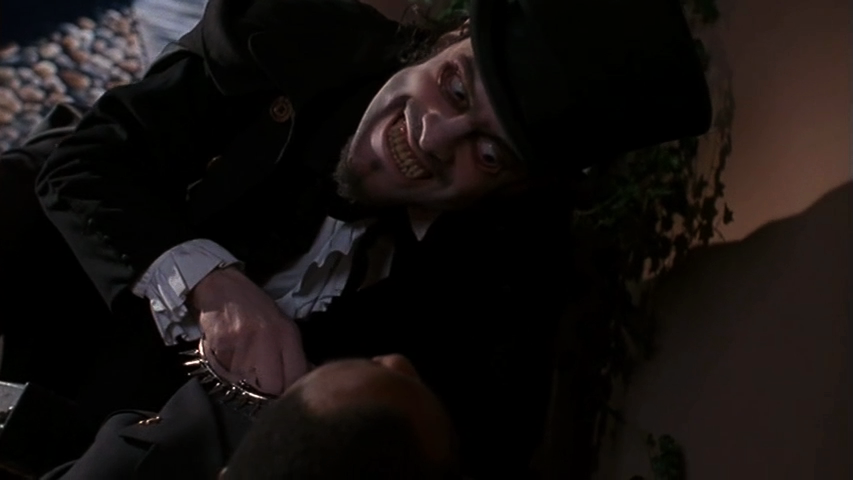 |
| "Can I borrow this?" |
At any rate, we move on and meet some more important characters, namely, Alexandra and Josh. We see the two playing tennis, and although they are somewhat goofy, the love interest almost immediatley set out is endearing.
Although this love interest also quickly leads to one of the most seriously insipid lines of horror: "I don't know," says Josh, examining a gemstone that was given to him by his love-interest, "I'm no gemologist." Keep in mind that Josh is a geophysicist... so... pretty groan worthy there. Also of note is a line that comes up a bit earlier, in which Alexandra's boss, in reference to the gem that Alexandra wants to test, proclaims, "tests? Like what, a physical?"
It's alright... a face-palm is definitely deserved here.
At any rate, the rest of the film seems content to play with this cheese a little further, as there are probably too many such moments to list. However, moving on...
After an accident at the geophysics (gemology) lab, in which the gem Josh is studying explodes after... well, apparently because it damn well feels like it. Apparently poor Josh works at the worst lab I've ever seen when it comes to safety concerns-- the gem manages to essentially create devastation across the lab, with no safe-guards seen (like... for example... fucking sprinklers). Logic aside, we then see one of the more questionable effects-- baby Djinn, who crawls toward a dying Josh.
At this point, I must admit, I got a little lost in this film in two different ways. There comes a point in which insipid or just plain dumb logic becomes entertaining (the "so bad it's good" rule of horror movies), and this... plays with that boundary, although it is unclear whether or not this is intentional. One such break in logic that I just can't wrap my mind around is that Josh releases the djinn, and essentially, since Josh is the first human the djinn sees after many... many years imprisoned in a red gem, why is it then that the djinn feels Alexandra is the only one who can make three wishes? Is it her bloodline? Is it because the djinn thinks she is pretty or something?
It is never explained and this lack of explanation will bug the viewer until the end, in which the credits roll while still offering no good explanation.
 |
| "Excuse me, but are any of these faces spiced?" |
Seriously, she's alright but she's not THAT cute.
The battle with Alexandra is fairly predictable, and I probably couldn't spoil it more than your best guesses could. She does battle with the djinn, wins, but in the end, it is shown that the djinn is not beaten, only put back in his prison, to wait... while cackling evilly.
By all rights, I really actually want to hate the film. It's insipid, poorly directed... but damn fun. The evil cackles as the wishmaster runs amok, his over-inflated dialogue (especially when he encounters Tony Todd, as a bouncer... my god, but if someone took that much of my time yammering on and on about evil crap, I'd just tell him to stop wasting my time, but this is a horror movie, and he has to make a wish so... the dialogue trails... and trails...)... it all actually adds up to...
... a very unintended delight. Sure, some of the effects are horrible-- which when you consider the team involved is actually kind of shocking. But the moments that work just... work. Maybe it's the wicked voice of the wishmaster, or his hypnotic gaze (which actually harkens a bit back to Legosi's dracula, quite possibly unintentionally). Maybe it's the fact that all the characters are so delightfully... stupid. Gemologist? Seriously... But all in all, even though the film offers little scares (except for a few cheap pop-up ones), once again, the whole is not the sum of its parts, and the film just feels like... play. Not my favourite type of horror-- I tend to enjoy things with claws that try to scratch at my sanity-- but it is hard to deny that this film doesn't intend to be fun and playful.
I give it an 80%. Due to its myriad flaws, I cannot really justify higher, but due to the amount of fun the film is, I can't really justify much lower.
